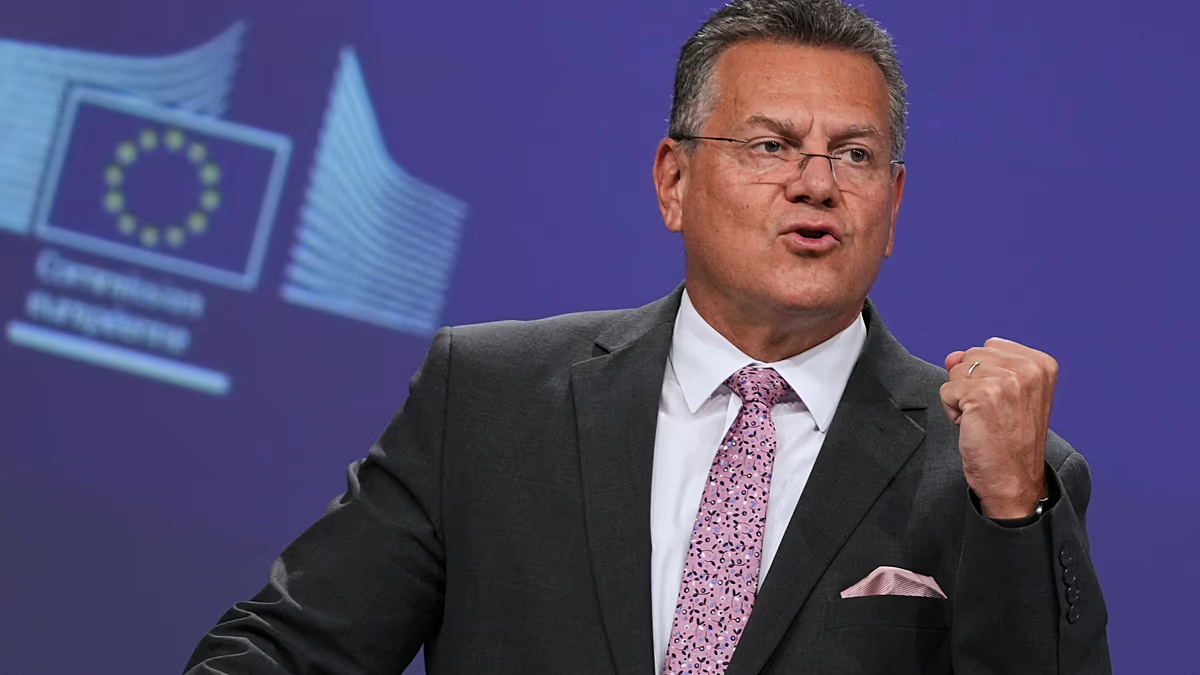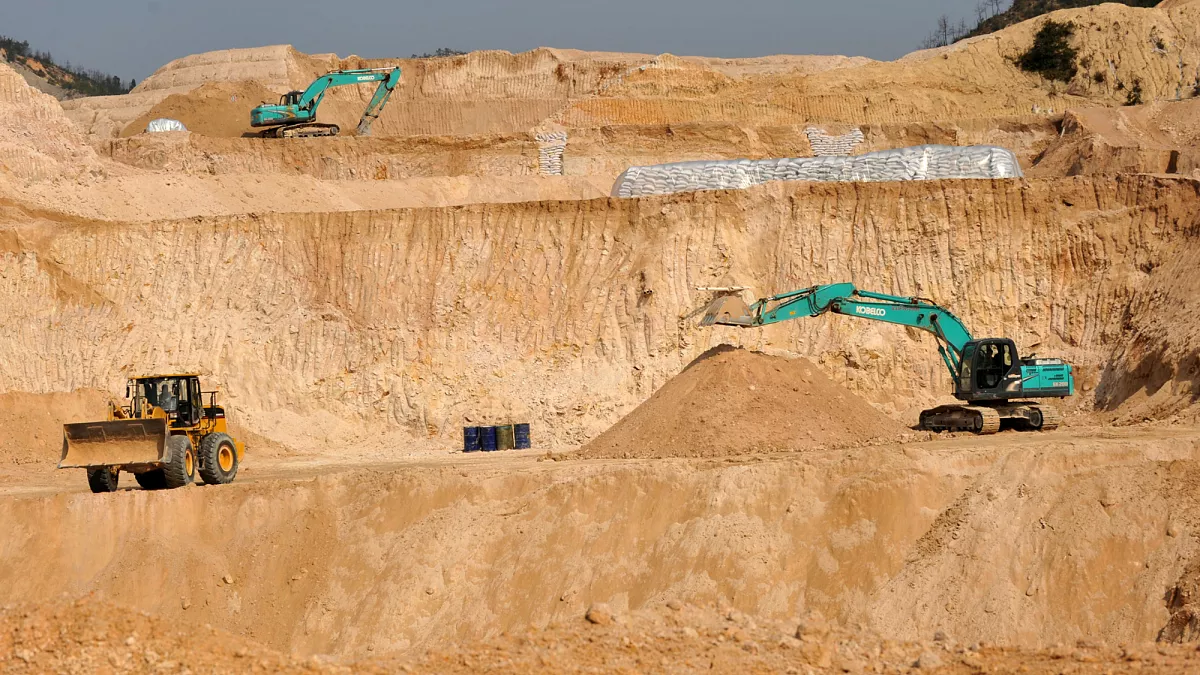Exclusive: ‘Everything can be weaponised,’ EU trade chief Šefčovič speaks after Nexperia spat
All critical strategic supplies can be used as a weapon against the European Union, Trade Commissioner Maroš Šefčovič told Euronews in an exclusive interview.
The EU is dealing with the fallout from the Dutch government’s takeover of Nexperia, a chipmaker, citing national security. The move from the Hague has prompted a clash between Europe and China over who controls the company and its finished products, resulting in Chinese restrictions on chip exports.
Šefčovič, an experienced politician who oversees the all-important trade portfolio for the EU, said the episode highlights the complexities of the global supply chain as well as the risks associated with critical dependencies on third countries outside the EU.
“It very much underlines the lessons we’ve learned over the past years, and it doesn’t concern only China. Today, everything can be weaponised,” Šefčovič told Euronews. For Europe, he argued, “it started with [Russian] gas, then it continued with critical raw materials and high and low-end chips. It can all be weaponised.”
Šefčovič has been in contact with Chinese and Dutch authorities since the spat started more than a month ago. The Dutch government took control of Nexperia on September 30, fearing that the company would be dismantled and relocated to China. The Dutch authorities remain worried that the move could also involve a transfer of sensitive technology.
The Chinese responded by blocking chip exports, triggering concerns in Europe and around the world about a potential global shortage of automotive chips.
The impasse eased on 30 October following a meeting between the Chinese and the United States in South Korea, where both sides agreed to a truce in their bilateral trade dispute.
“China is taking appropriate measures to ensure trade from Nexperia’s facilities in China resumes, so that production of crucial chips can flow to the rest of the world,” a White House statement read.
Šefčovič suggested that the partial restoration of exports points to the start of a resolution to the standoff, but reiterated that the debacle was a warning of the urgent need to diversify.
“We are getting information from the car manufacturers to the spare parts producers that they are getting these chips,” he told Euronews.
“But we are only at the beginning of resolving this problem, so we will continue to talk with our Dutch colleagues and Chinese authorities.”
Vincent Karremans, the Dutch minister at the centre of the storm with Beijing, said in an interview that he would do it all again in the same manner and signalled that the episode is a warning of the large dependencies Europe has built over the years.
EU preparing new doctrine on economic security
The Nexperia saga is the latest incident between China and the EU over the supply of strategic components used across industries from cars to defence.
It also highlights how these materials are becoming a political tool for exerting economic pressure. After weeks of tensions that have impacted the European industry, the EU has secured a deal with China to ease restrictions on some rare-earth exports.
The Commission is working on a plan due to be presented next month that addresses some of these weaknesses. Šefčovič said the global competition to secure rare earths, critical components, and a stable supply chain required a unified approach.
“We have to work a little bit more like Japan, where they’re stockpiling some of the critical raw materials, some of that critical technologies and critical chips”, said Šefčovič.
“I think this would be one of the lessons which we want to bring in the new economic security doctrine, which we’ll be presenting before the end of the year.”
The EU has been actively pursuing a policy of de-risking, but not de-coupling from China, which would keep the door open to trade while applying safeguards in key areas deemed strategic for the EU and closing loopholes into the single market.
“Economic security and effective export controls would work only if they’re applied in harmony as homogeneous across the EU,” Šefčovič said.
“Those who want to abuse the system will always find a weak spot to penetrate the European market – and then put the whole European economy in jeopardy,” he concluded.

